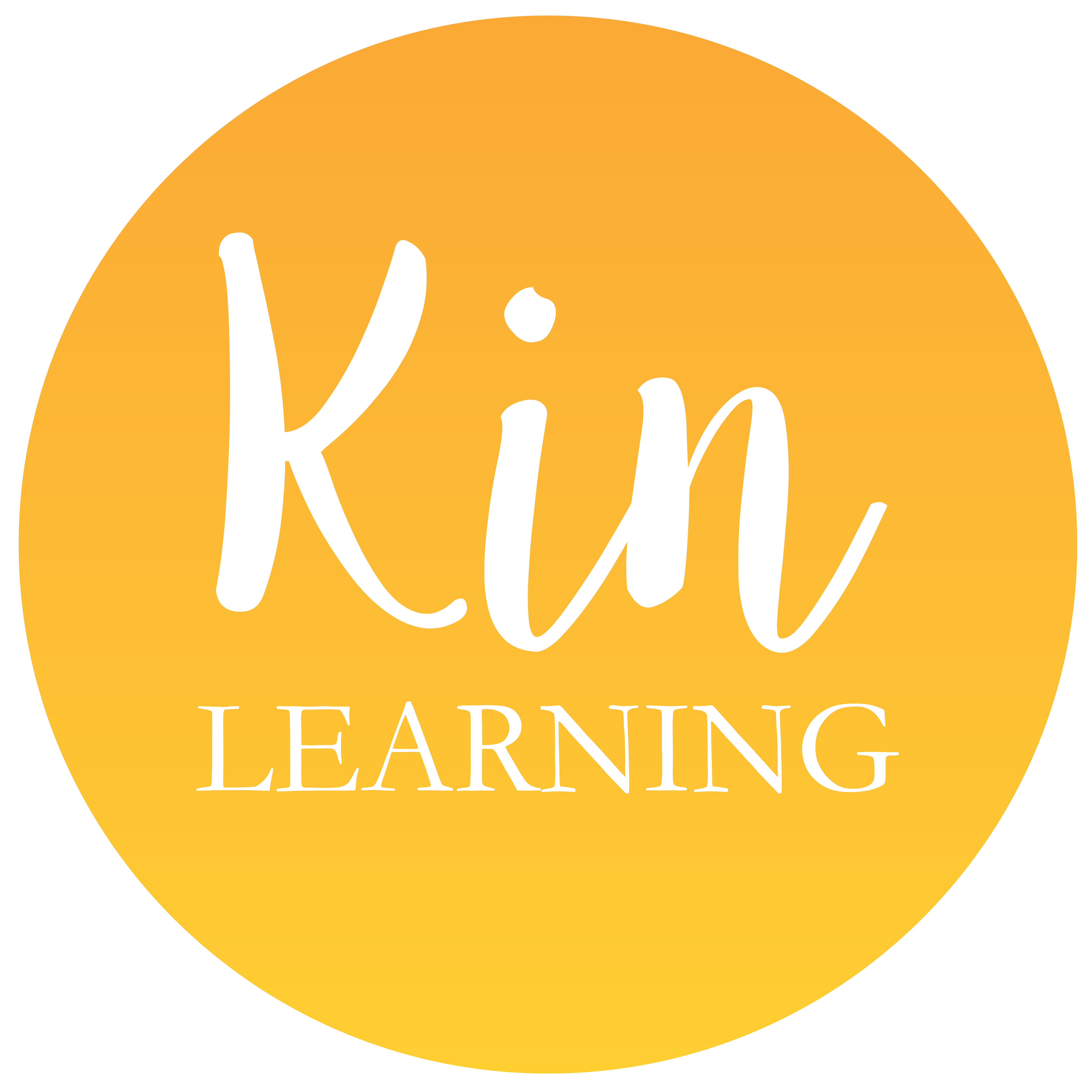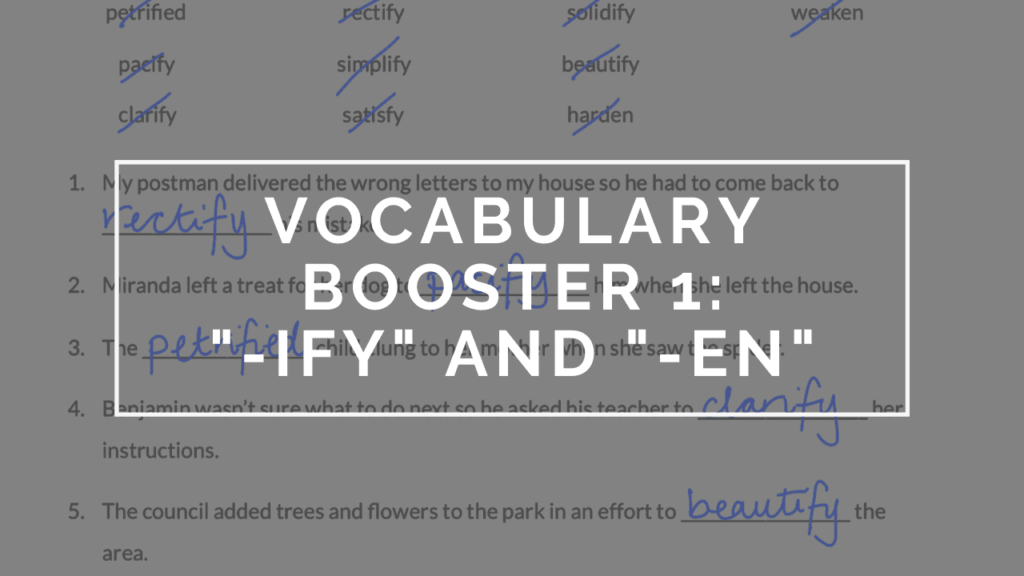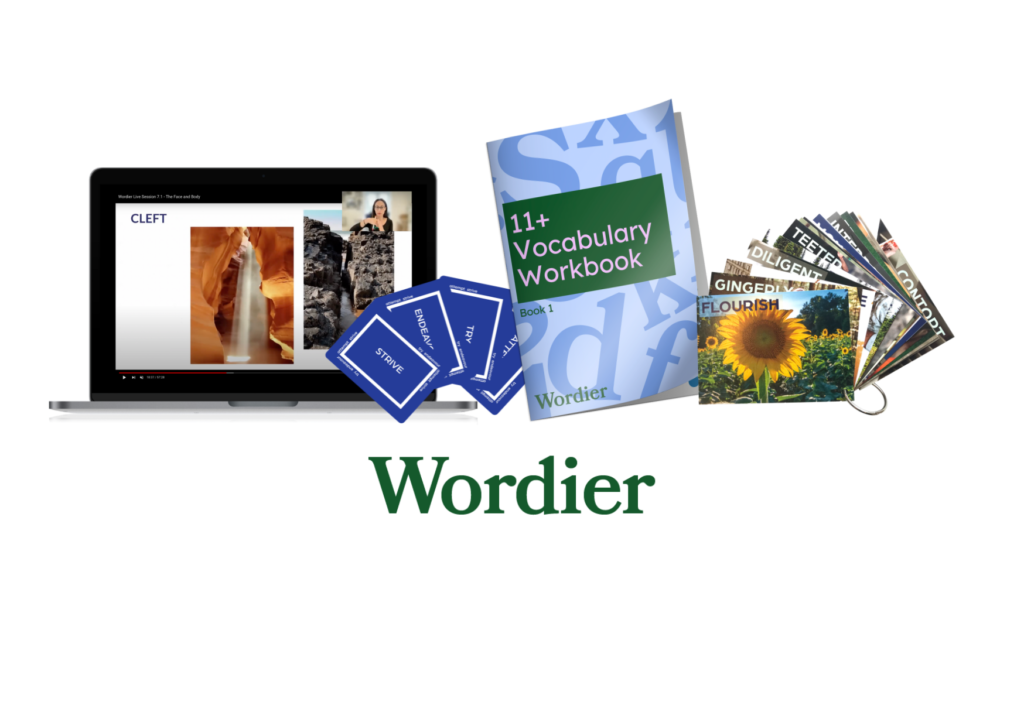For Years 4 to 6
The video below is the first in our series of Vocabulary Booster classes. Each week, a new topic is covered which will expand your child’s vocabulary and introduce them to hundreds of new words.
This video is designed to accompany our first Vocabulary Worksheet. Click the button below to download the worksheet before starting the video.
Forming Verbs
Verbs can be made by using prefixes and suffixes.
What is a verb?
A verb is a doing word. They are used to describe an action, state, or occurrence
What is a prefix?
A prefix is a group of letters which come before the main word, this could be a root word or a base word. Prefixes change the definition of the main word.
Examples of prefixes include un- and re-.
What is a suffix?
A suffix is a group of letters which are added to the end of the main word.
Examples of suffixes include -able, -ing and -ed.
The suffix “-en”
The suffix “-en” is used to form verbs from adjectives and nouns. Below are some examples of these words, along with their definitions.
Dampen: to make slightly wet; to make less strong.
Moisten: to make slightly wet.
Sharpen: to make or become sharp.
Redden: to make or become red.
Hasten: to be quick to do something.
These words demonstrate the effect which this particular suffix has on the words. For example, damp is an adjective used to describe something, like a damp towel. Adding the suffix “-en” changes it to the action of making something damp, this is now a verb.
The suffix “-ify”
The suffix “-ify” is also used to create verbs. This suffix means “to make or cause to be”. Below are some definitions of words with this suffix.
Purify: to remove contaminants from; to make something pure.
Falsify: to change something in order to mislead, or make it fake.
Unify: to make or become united, uniform, or whole.
Stupefy: to make someone shocked and unable to react.
Mummify: to carry out the process mummification to preserve a body.
These words successfully show the effect of this suffix. For example, the word pure is used to describe something which is not mixed with any other substances, like pure orange juice. After adding the suffix “-ify” to the word, we now have a verb which describing the action of making something pure.
Activity 1 – Matching Root Words and Suffixes
Now your child can complete the first activity on the Vocabulary Worksheet. Match the root words with the correct suffix to form a word with a new definition.
The answers to this section of the worksheet can be found in the video above (11:14).
Activity 2 – Definitions
Use the clues on your worksheet to work out the definitions for each word. The correct definitions are listed below.
Pacify: to bring peace and tranquility.
Petrify: to change into stone; to paralyse with fear or astonishment.
Modify: to change something; amend or alter.
Rectify: to correct.
Clarify: to make something clear or intelligible.
Verify: to check whether something is true.
Justify: to show that something is fair or right.
Activity 3 – Cloze Test
The next activity on the worksheet is the close test. Your child can use the words to fill in the gaps in the sentences. Below is a definition which will help your child complete this task.
Anticlimactic: causing disappointment at the end of an exciting or impressive series of events.
For example, if the end of a film is not as dramatic or exciting as you would have hoped.
My postman delivered the wrong letters to my house so he had to come back to rectify his mistake.
Miranda left a treat for her dog to pacify him when she left the house.
The petrified child clung to her mother when she saw the spider.
Benjamin wasn’t sure what to do next so he asked his teacher to clarify her instructions.
The council added trees and flowers to the park in an effort to beautify the area.
After a lot of discussion, the family was finally able to solidify their holiday plans.
My mum re-wrote the recipe using easier words to simplify it for me.
The film’s ending did not satisfy its fans; many found it to be anti-climactic.
Freshly-cooked flapjacks will harden as they cool.
Children used the tree as a swing, which caused its branches to weaken.
Writing Sentences
Now your child has successfully learnt these new words and definitions they can practice using them correctly by writing their own sentences. Here are some example sentences which include the new words from the suffixes “-en” and “-ify”.
The weary mother let her children stay up 15 minutes later just to pacify them.
Please could you clarify how is best for me to get in touch with you.
My uncle modified his car to make it go faster.
It took 12 hours for the cement to solidify.
Talking the event over with my mum helped to solidify my plans.
I boiled the water before drinking it in order to purify it.
Alex tried hard to hide how petrified he was.
I tried my best to rectify the situation but the damage was already done.
We created Wordier, our sister company, to give our students the vocabulary they need to succeed. Whether you’re preparing for the 11+ or simply looking to boost your child’s English skills, Wordier has the right tool for you.


